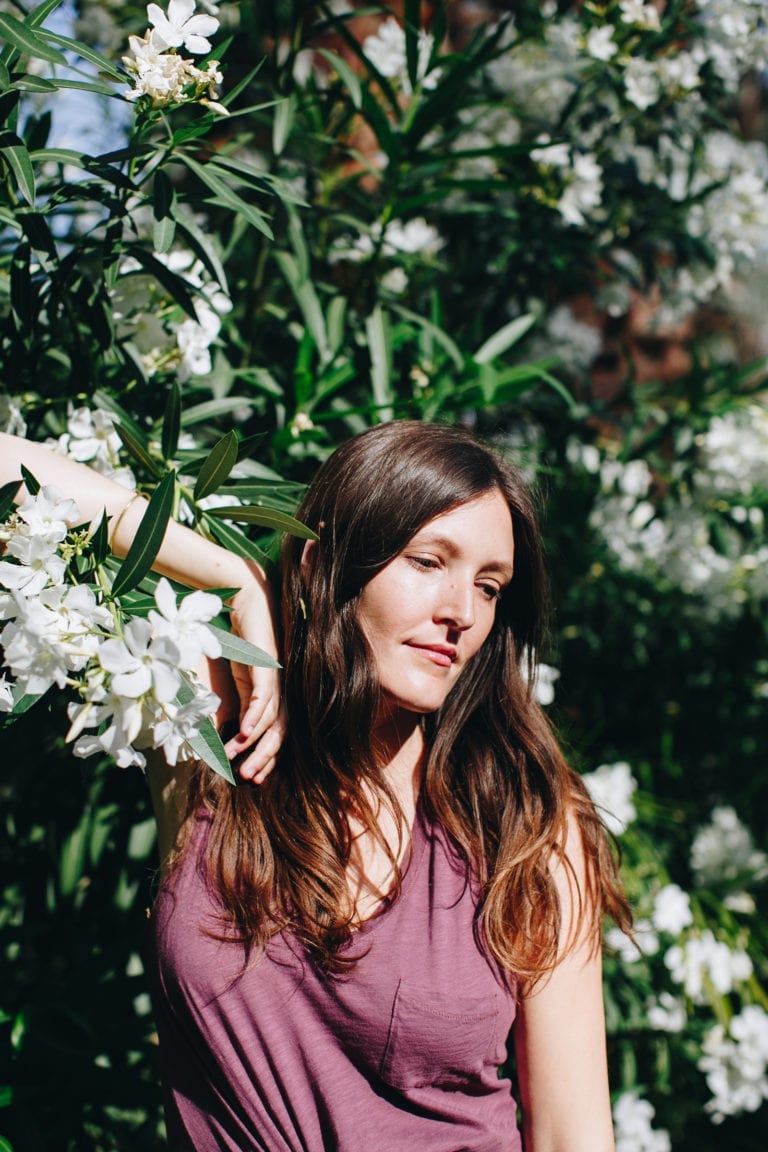
Practice breathwork with Ashley in-person at Wanderlust O’ahu, February 28–March 3.
Take a deep breath. Feels good, doesn’t it? The breath is an amazing tool—and yet we so often let each breath slip by without any recognition. But what if instead of ignoring the breath, we worked with it as a tool for transformation?
Breathwork teacher and holistic practitioner Ashley Neese is all about utilizing the power of the breath in this way. Ashley originally came to breathwork through her Hatha yoga practice, saying that she was drawn to the accessibility of breathwork and loved “that it didn’t require anything other than curiosity and willingness to dive deeper.”
That’s the beauty of the breath—it’s constant and unconditional. We’ll be breathing until we slip into the next realm (or whatever you believe), so why not us it as a modem for health and connection? If you share Ashley’s curiosity, read on.

Benefits of Daily Breathwork
“Breathwork is a powerful technology for healing and establishing clarity in any aspect of your life,” Ashley says. In other words, by developing a relationship with the breath, we’re further enabled to take better care of the rest of our bodies and release beliefs and patterns that no longer serve. (You can read more on the science of that, here.) Some folks even compare a good breathwork session to taking out the emotional trash.
Here are some other benefits breathwork practitioners have experienced:
- Clears stuck energy and limiting beliefs
- Strengthens intuition
- Calms and grounds the nervous system
- Heals relational trauma
- Inspires creativity
- Upgrades emotional intelligence
- Opens the heart for a greater exchange of love
- Balances the chakras (or energy centers)
- Promotes relaxation and helps establish natural sleep patterns
- Relieves anxiety, grief, and stress
- Boosts immunity
- Supports addiction recovery
Ashley also supports a breathwork practice in addition to other healing methods, such as talk therapy.
“Any therapy that just focuses on the mind is incomplete and never addresses the roots of the issues,” she reports. “Working with the breath is by nature a somatic, or body focused way to work. Given how many people spend most of their lives outside of their bodies, breathwork has proven to be such a powerful way to connect deeply to our core, our bodies and the stories they hold.”
Your First Session and What to Expect
“During a session, clients gain a tangible sense of dropping into their bodies” Ashley reports. “They learn to distinguish the somatic markets of when their system is activated and when it is regulated. They also might feel their bodies release held energy, experience awakenings in their hearts, or witness intuitive openings.”
This could mean the cramping of the hands (as energy is passing through the body) or experiencing tingles in other areas of your physical self. It’s not uncommon to hate breathwork for the first ten minutes—only to realize your body only thinks it’s uncomfortable because it’s afraid to work through those emotional blocks. Once you really start to move past any discomfort, there is a great a release, perhaps leading to one of those intuitive openings Ashley mentioned earlier.
“I want my clients to take away the knowing that they are their own best healers, that they are resilient beyond measure,” Ashley continues. “And that they have everything they need within themselves to fully show up and embrace each moment with grace no matter how they grew up or what programming they are coming in with.”
Breathwork You Can Practice Right Here, Right Now
You know that moment in yoga class where the teacher instructs you to breath deeply in and out through your nose? This is the ujjayi breath, or oceanic breathing. (It’s named such for the subtle sound it makes when you slightly constrict your throat muscles on the inhale and exhale.) This small amount of tension helps soothe mind and the breath draws the body into a space of deep relaxation. Take ujjayi off the mat and enjoy at home during moments of stress, anxiety, worry, or insomnia.
To practice:
- Sit up tall in a chair on on the floor. Rest your hands on your knees. Gently close your eyes.
- Begin breathing deeply in and out through the nose. With each inhale and exhale lightly constrict your throat, more specifically the epiglottis. Keep this contraction engaged the entire time.
- Bring your awareness to the sound of the breath and and focus on making it deeper and smoother as you continue to breathe. Start with 3 minutes in the morning or evening
What are your favorite ways to practice breathwork? Let us know in the comments below. For 20% off on Ashley’s online breathwork classes, use the code “wanderlust” upon checkout. Coupon code expires 12/14/18 and is available until 12/31/18.
—
 Amanda Kohr is the Senior Content Editor at Wanderlust. You can find her exploring new highways, drinking diner coffee, and on Instagram.
Amanda Kohr is the Senior Content Editor at Wanderlust. You can find her exploring new highways, drinking diner coffee, and on Instagram.